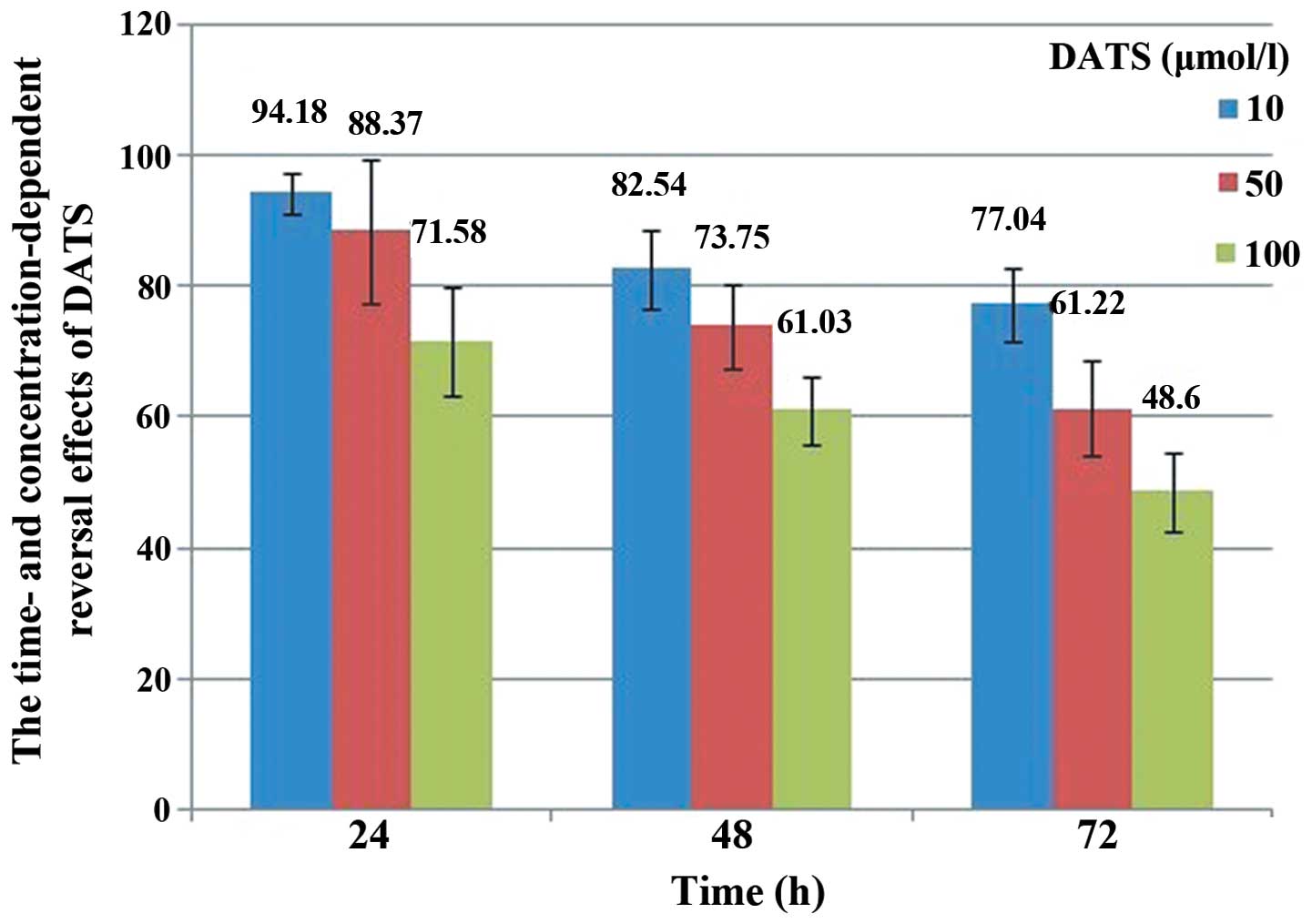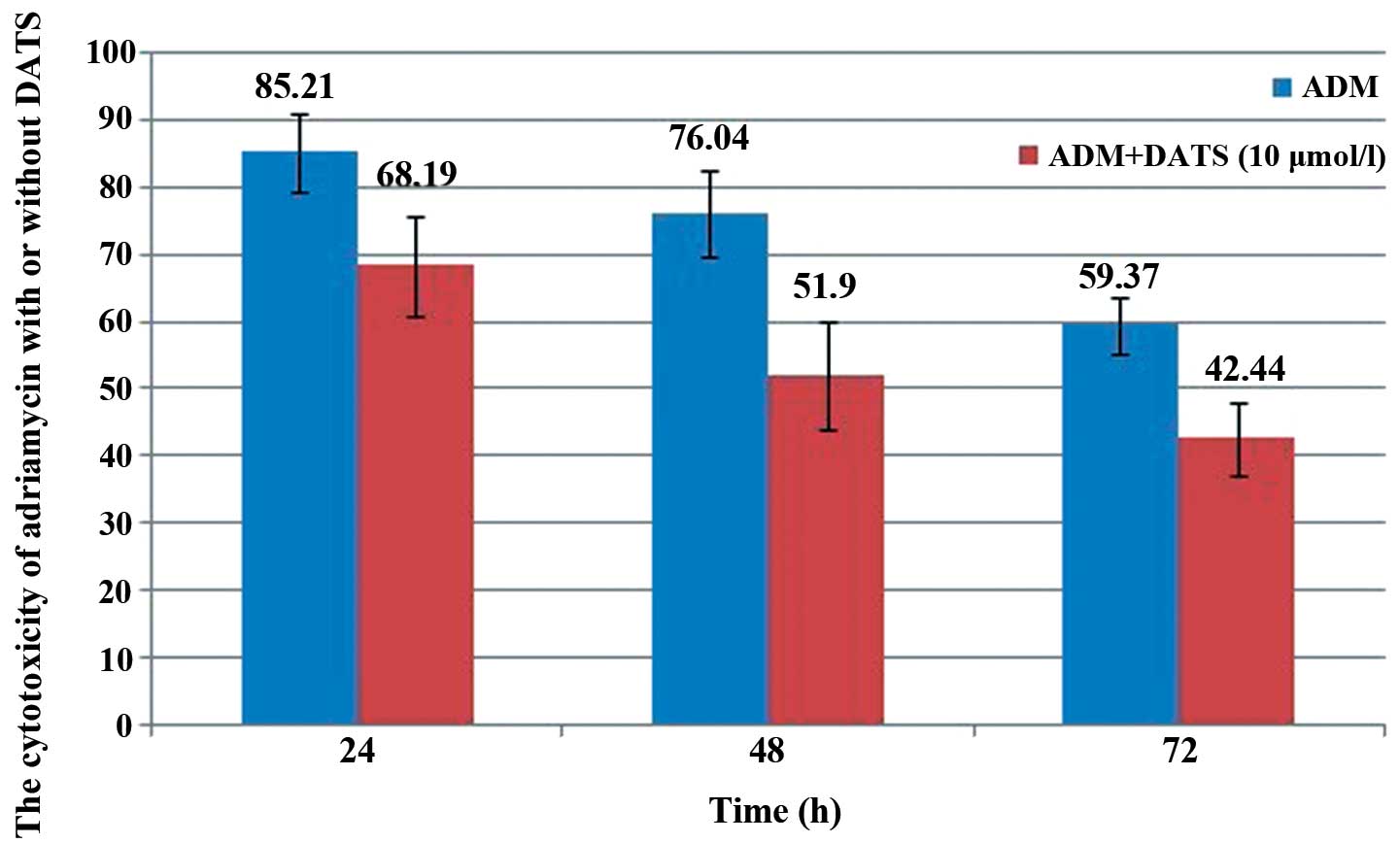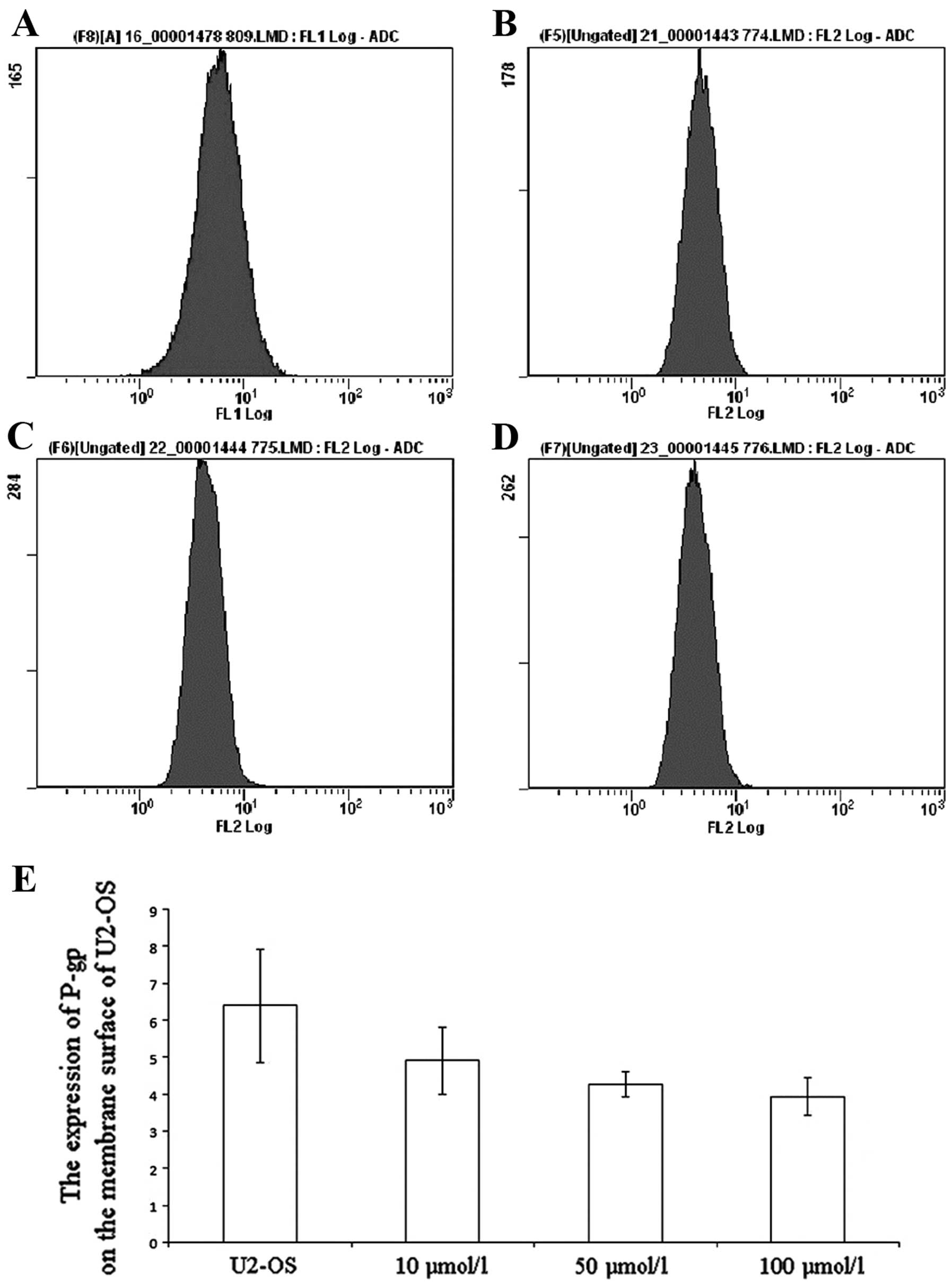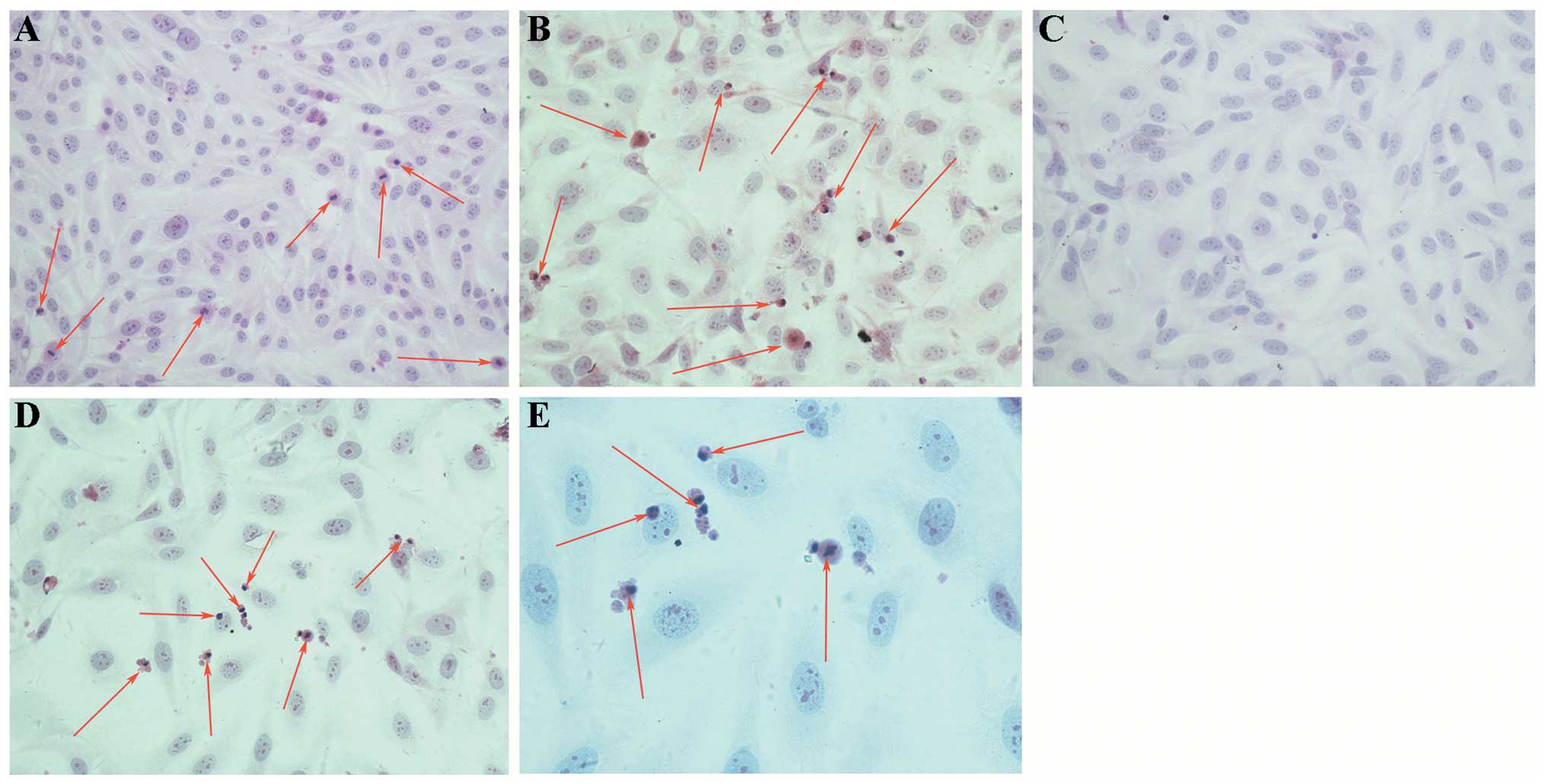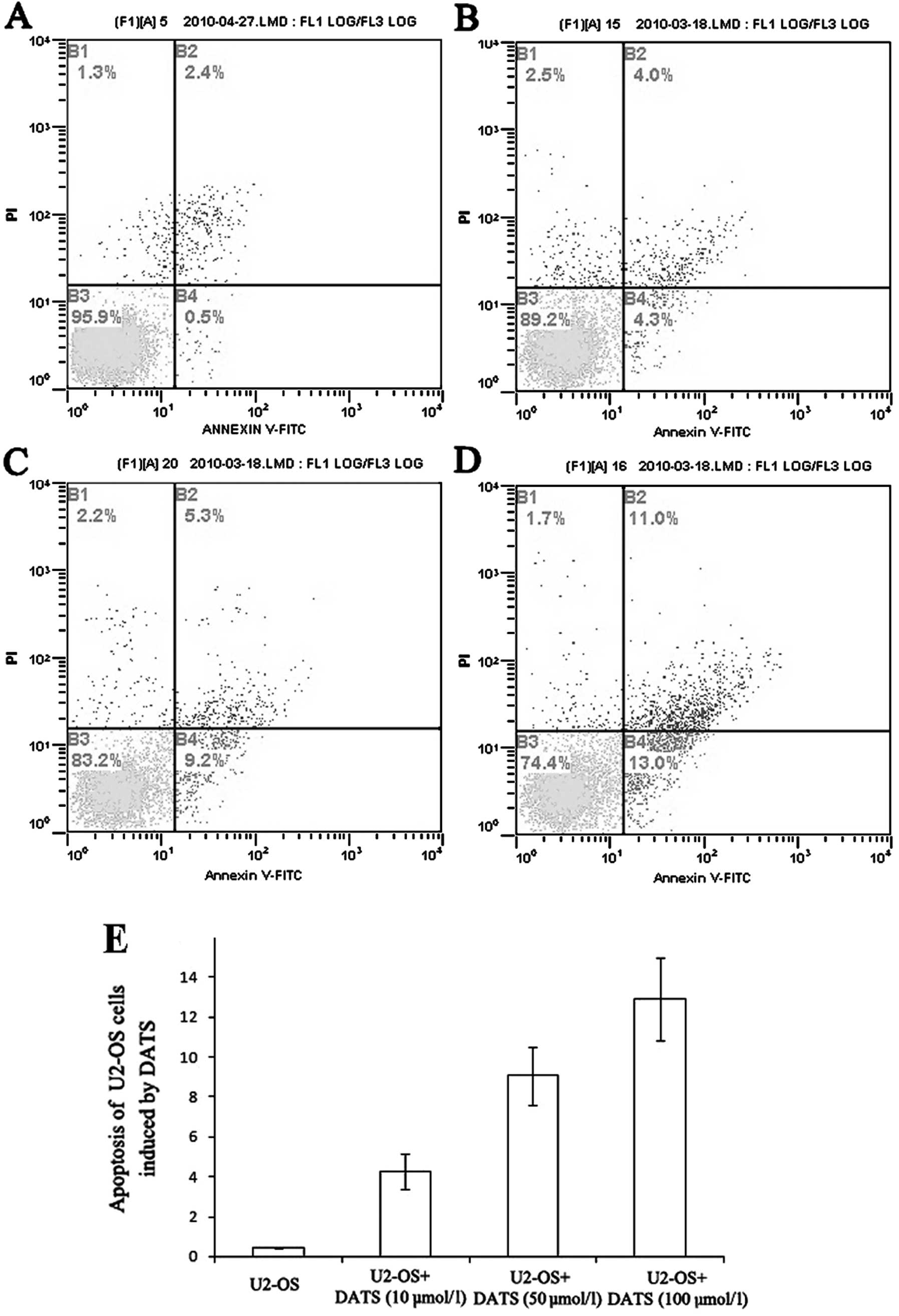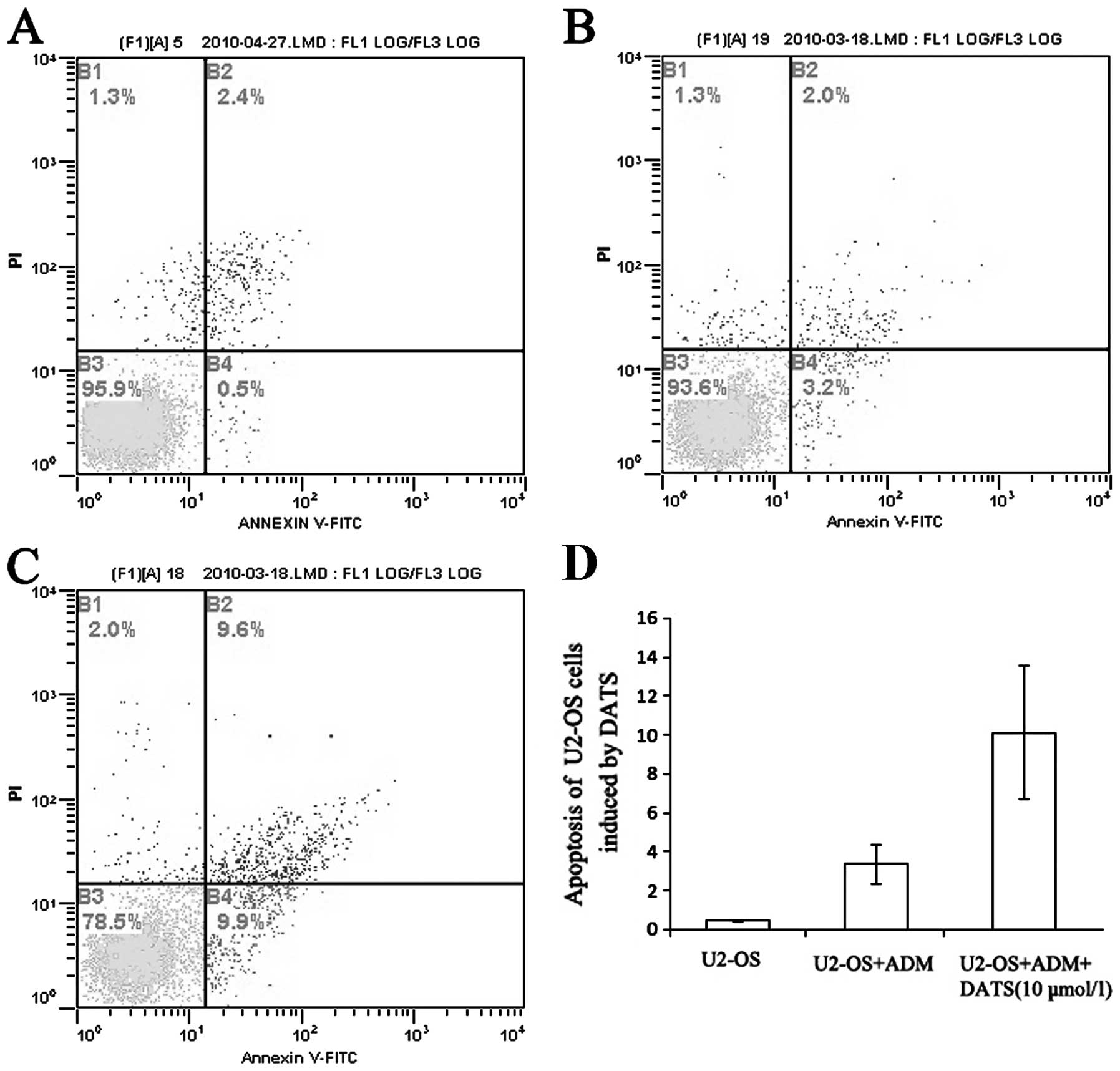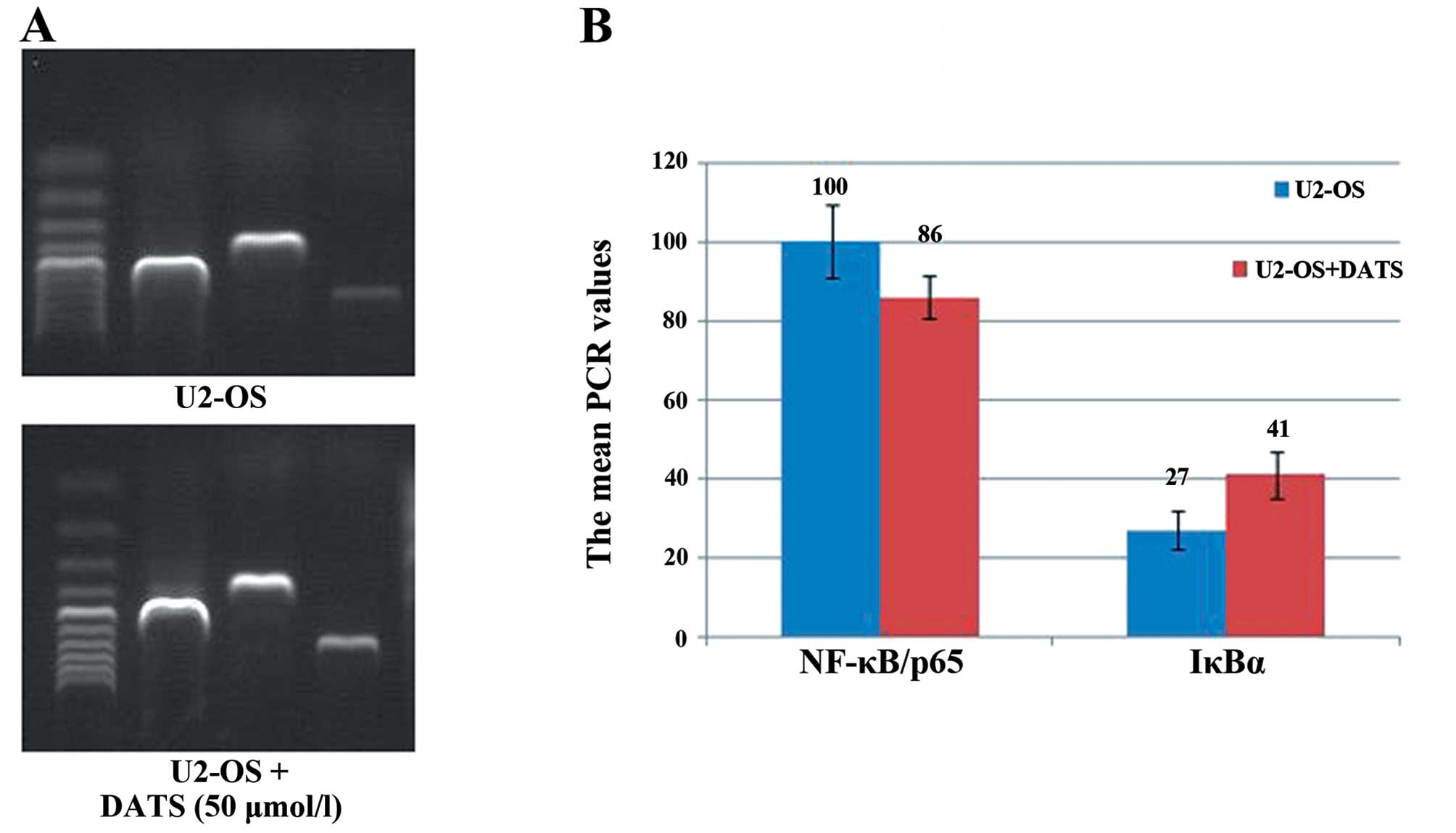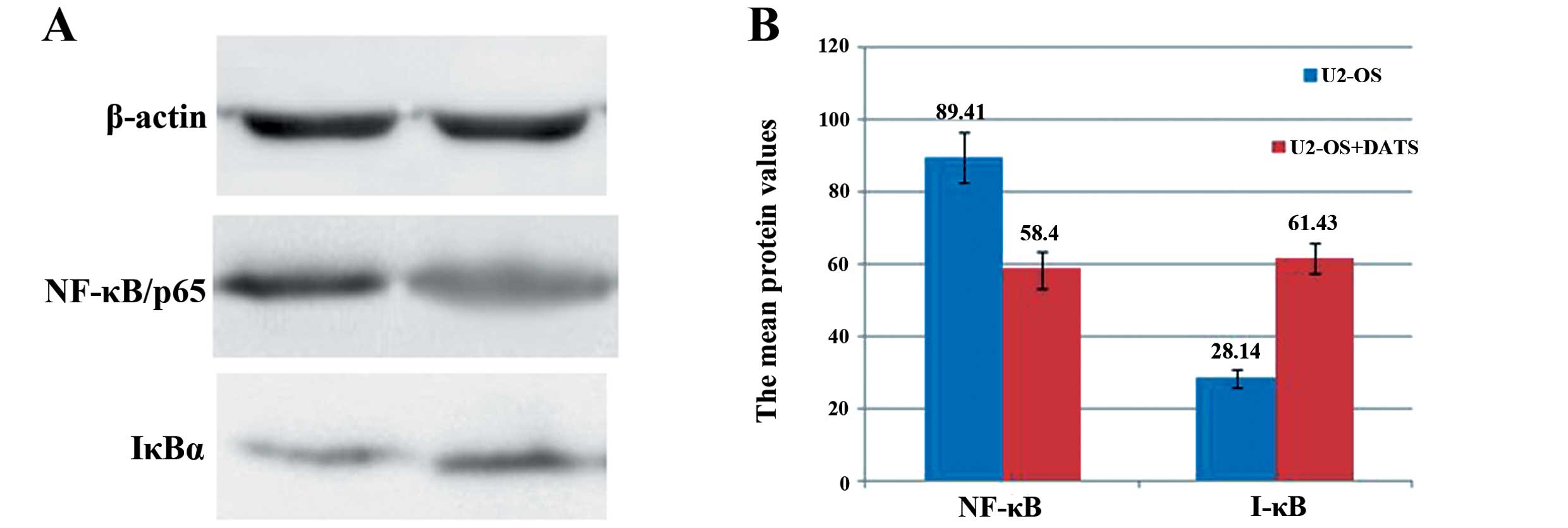|
1
|
Gillet JP, Efferth T and Remacle J:
Chemotherapy-induced resistance by ATP-binding cassette transporter
genes. Biochim Biophys Acta. 1775:237–262. 2007.PubMed/NCBI
|
|
2
|
Mimeault M, Hauke R and Batra SK: Recent
advances on the molecular mechanisms involved in the drug
resistance of cancer cells and novel targeting therapies. Clin
Pharmacol Ther. 83:673–691. 2008. View Article : Google Scholar : PubMed/NCBI
|
|
3
|
Inaba M, Fujikura R, Tsukagoshi S and
Sakurai Y: Restored in vitro sensitivity of adriamycin- and
vincristine-resistant P388 leukemia with reserpine. Biochem
Pharmacol. 30:2191–2194. 1981. View Article : Google Scholar : PubMed/NCBI
|
|
4
|
Tian W, Deng Y, Li L, He H, Sun J and Xu
D: Honokiol synergizes chemotherapy drugs in multidrug resistant
breast cancer cells via enhanced apoptosis and additional
programmed necrotic death. Int J Oncol. 42:721–732. 2013.
|
|
5
|
Xu D, Tian W and Shen H: P-gp upregulation
may be blocked by natural curcuminoids, a novel class of
chemoresistance-preventing agents. Mol Med Rep. 7:115–121.
2013.PubMed/NCBI
|
|
6
|
Sun J, Yeung CA, Co NN, et al: Clitocine
reversal of P-glycoprotein associated multi-drug resistance through
down-regulation of transcription factor NF-κB in R-HepG2 cell line.
PLoS One. 7:e407202012.PubMed/NCBI
|
|
7
|
Gao CM, Takezaki T, Ding JH, Li MS and
Tajima K: Protective effect of allium vegetables against both
esophageal and stomach cancer: a simultaneous case-referent study
of a high-epidemic area in Jiangsu Province, China. Jpn J Cancer
Res. 90:614–621. 1999. View Article : Google Scholar : PubMed/NCBI
|
|
8
|
Fleischauer AT, Poole C and Arab L: Garlic
consumption and cancer prevention: meta-analyses of colorectal and
stomach cancers. Am J Clin Nutr. 72:1047–1052. 2000.PubMed/NCBI
|
|
9
|
Engdal S, Klepp O and Nilsen OG:
Identification and exploration of herb-drug combinations used by
cancer patients. Integr Cancer Ther. 8:29–36. 2009. View Article : Google Scholar : PubMed/NCBI
|
|
10
|
Chen GW, Chung JG, Ho HC and Lin JG:
Effects of the garlic compounds diallyl sulphide and diallyl
disulphide on arylamine N-acetyltransferase activity in
Klebsiella pneumoniae. J Appl Toxicol. 19:75–81. 1999.
View Article : Google Scholar : PubMed/NCBI
|
|
11
|
Ankri S and Mirelman D: Antimicrobial
properties of allicin from garlic. Microbes Infect. 1:125–129.
1999. View Article : Google Scholar
|
|
12
|
Ackermann RT, Mulrow CD, Ramirez G,
Gardner CD, Morbidoni L and Lawrence VA: Garlic shows promise for
improving some cardiovascular risk factors. Arch Intern Med.
161:813–824. 2001. View Article : Google Scholar : PubMed/NCBI
|
|
13
|
Chung LY: The antioxidant properties of
garlic compounds: allyl cysteine, alliin, allicin, and allyl
disulfide. J Med Food. 9:205–213. 2006. View Article : Google Scholar : PubMed/NCBI
|
|
14
|
Siddique YH and Afzal M: Antigenotoxic
effect of allicin against SCEs induced by methyl methanesulphonate
in cultured mammalian cells. Indian J Exp Biol. 42:437–438.
2004.PubMed/NCBI
|
|
15
|
Ohaeri OC and Adoga GI: Anticoagulant
modulation of blood cells and platelet reactivity by garlic oil in
experimental diabetes mellitus. Biosci Rep. 26:1–6. 2006.
View Article : Google Scholar : PubMed/NCBI
|
|
16
|
Herman-Antosiewicz A, Kim YA, Kim SH, Xiao
D and Singh SV: Diallyl trisulfide-induced G2/M phase cell cycle
arrest in DU145 cells is associated with delayed nuclear
translocation of cyclin-dependent kinase 1. Pharm Res.
27:1072–1079. 2010. View Article : Google Scholar : PubMed/NCBI
|
|
17
|
Herman-Antosiewicz A and Singh SV:
Checkpoint kinase 1 regulates diallyl trisulfide-induced mitotic
arrest in human prostate cancer cells. J Biol Chem.
280:28519–28528. 2005. View Article : Google Scholar : PubMed/NCBI
|
|
18
|
Li N, Guo R, Li W, et al: A proteomic
investigation into a human gastric cancer cell line BGC823 treated
with diallyl trisulfide. Carcinogenesis. 27:1222–1231. 2006.
View Article : Google Scholar : PubMed/NCBI
|
|
19
|
Das A, Banik NL and Ray SK: Garlic
compounds generate reactive oxygen species leading to activation of
stress kinases and cysteine proteases for apoptosis in human
glioblastoma T98G and U87MG cells. Cancer. 110:1083–1095. 2007.
View Article : Google Scholar : PubMed/NCBI
|
|
20
|
Xiao D, Zeng Y, Hahm ER, Kim YA,
Ramalingam S and Singh SV: Diallyl trisulfide selectively causes
Bax- and Bak-mediated apoptosis in human lung cancer cells. Environ
Mol Mutagen. 50:201–212. 2009. View
Article : Google Scholar : PubMed/NCBI
|
|
21
|
Wu XJ, Hu Y, Lamy E and Mersch-Sundermann
V: Apoptosis induction in human lung adenocarcinoma cells by
oil-soluble allyl sulfides: triggers, pathways, and modulators.
Environ Mol Mutagen. 50:266–275. 2009. View
Article : Google Scholar : PubMed/NCBI
|
|
22
|
Xiao D, Li M, Herman-Antosiewicz A, et al:
Diallyl trisulfide inhibits angiogenic features of human umbilical
vein endothelial cells by causing Akt inactivation and
down-regulation of VEGF and VEGF-R2. Nutr Cancer. 55:94–107. 2006.
View Article : Google Scholar : PubMed/NCBI
|
|
23
|
Shankar S, Chen Q, Ganapathy S, Singh KP
and Srivastava RK: Diallyl trisulfide increases the effectiveness
of TRAIL and inhibits prostate cancer growth in an orthotopic
model: molecular mechanisms. Mol Cancer Ther. 7:2328–2338. 2008.
View Article : Google Scholar : PubMed/NCBI
|
|
24
|
Xia Q, Wang ZY, Li HQ, et al: Reversion of
p-glycoprotein-mediated multidrug resistance in human leukemic cell
line by diallyl trisulfide. Evid Based Complement Alternat Med.
2012:7198052012.PubMed/NCBI
|
|
25
|
Zhang YK, Zhang XH, Li JM, Sun de S, Yang
Q and Diao DM: A proteomic study on a human osteosarcoma cell line
Saos-2 treated with diallyl trisulfide. Anticancer Drugs.
20:702–712. 2009. View Article : Google Scholar : PubMed/NCBI
|
|
26
|
Szakacs G, Paterson JK, Ludwig JA,
Booth-Genthe C and Gottesman MM: Targeting multidrug resistance in
cancer. Nat Rev Drug Discov. 5:219–234. 2006. View Article : Google Scholar : PubMed/NCBI
|
|
27
|
Colabufo NA, Contino M, Berardi F, et al:
A new generation of MDR modulating agents with dual activity: P-gp
inhibitor and iNOS inducer agents. Toxicol In Vitro. 25:222–230.
2011. View Article : Google Scholar : PubMed/NCBI
|
|
28
|
Biedler JL and Riehm H: Cellular
resistance to actinomycin D in Chinese hamster cells in vitro:
cross-resistance, radioautographic, and cytogenetic studies. Cancer
Res. 30:1174–1184. 1970.PubMed/NCBI
|
|
29
|
Juliano RL and Ling V: A surface
glycoprotein modulating drug permeability in Chinese hamster ovary
cell mutants. Biochim Biophys Acta. 455:152–162. 1976. View Article : Google Scholar : PubMed/NCBI
|
|
30
|
Niu J, Shi Y, Tan G, et al: DNA damage
induces NF-κB-dependent microRNA-21 up-regulation and promotes
breast cancer cell invasion. J Biol Chem. 287:21783–21795.
2012.
|
|
31
|
Mburu YK, Egloff AM, Walker WH, et al:
Chemokine receptor 7 (CCR7) gene expression is regulated by NF-κB
and activator protein 1 (AP1) in metastatic squamous cell carcinoma
of head and neck (SCCHN). J Biol Chem. 287:3581–3590. 2012.
|
|
32
|
Lin MT, Chang CC, Chen ST, et al: Cyr61
expression confers resistance to apoptosis in breast cancer MCF-7
cells by a mechanism of NF-κB-dependent XIAP up-regulation. J Biol
Chem. 279:24015–24023. 2004.PubMed/NCBI
|
|
33
|
Malewicz M, Zeller N, Yilmaz ZB and Weih
F: NF κB controls the balance between Fas and tumor necrosis factor
cell death pathways during T cell receptor-induced apoptosis via
the expression of its target gene A20. J Biol Chem.
278:32825–32833. 2003.
|
|
34
|
Bubici C, Papa S, Pham CG, Zazzeroni F and
Franzoso G: NF-κB and JNK: an intricate affair. Cell Cycle.
3:1524–1529. 2004.
|
|
35
|
Bourguignon LY, Xia W and Wong G:
Hyaluronan-mediated CD44 interaction with p300 and SIRT1 regulates
beta-catenin signaling and NFκB-specific transcription activity
leading to MDR1 and Bcl-xL gene expression and chemoresistance in
breast tumor cells. J Biol Chem. 284:2657–2671. 2009.PubMed/NCBI
|
|
36
|
Zhou G and Kuo MT: NF-κB-mediated
induction of mdr1b expression by insulin in rat hepatoma cells. J
Biol Chem. 272:15174–15183. 1997.
|
|
37
|
Chelbi-alix MK, Bobe P, Benoit G, Canova A
and Pine R: Arsenic enhances the activation of Stat1 by interferon
gamma leading to synergistic expression of IRF-1. Oncogene.
22:9121–9130. 2003. View Article : Google Scholar : PubMed/NCBI
|
|
38
|
Chen JW, Tao S, Luo R, Zhang GS and Xu YX:
Molecular mechanism of reversing multi-drug resistance of K562/AO2
by puerarin. Zhong Nan Da Xue Xue Bao Yi Xue Ban. 33:216–221.
2008.(In Chinese).
|
|
39
|
Kokura S, Yoshida N, Sakamoto N, et al:
The radical scavenger edaravone enhances the anti-tumor effects of
CPT-11 in murine colon cancer by increasing apoptosis via
inhibition of NF-κB. Cancer Lett. 229:223–233. 2005.PubMed/NCBI
|
|
40
|
Um JH, Kang CD, Lee BG, Kim DW, Chung BS
and Kim SH: Increased and correlated nuclear factor-kappa B and Ku
autoantigen activities are associated with development of multidrug
resistance. Oncogene. 20:6048–6056. 2001. View Article : Google Scholar : PubMed/NCBI
|
|
41
|
Lin YG, Kunnumakkara AB, Nair A, et al:
Curcumin inhibits tumor growth and angiogenesis in ovarian
carcinoma by targeting the nuclear factor-κB pathway. Clin Cancer
Res. 13:3423–3430. 2007.PubMed/NCBI
|
|
42
|
Tang QL, Xie XB, Wang J, et al: Glycogen
synthase kinase-3beta, NF-κB signaling, and tumorigenesis of human
osteosarcoma. J Natl Cancer Inst. 104:749–763. 2012.
|















